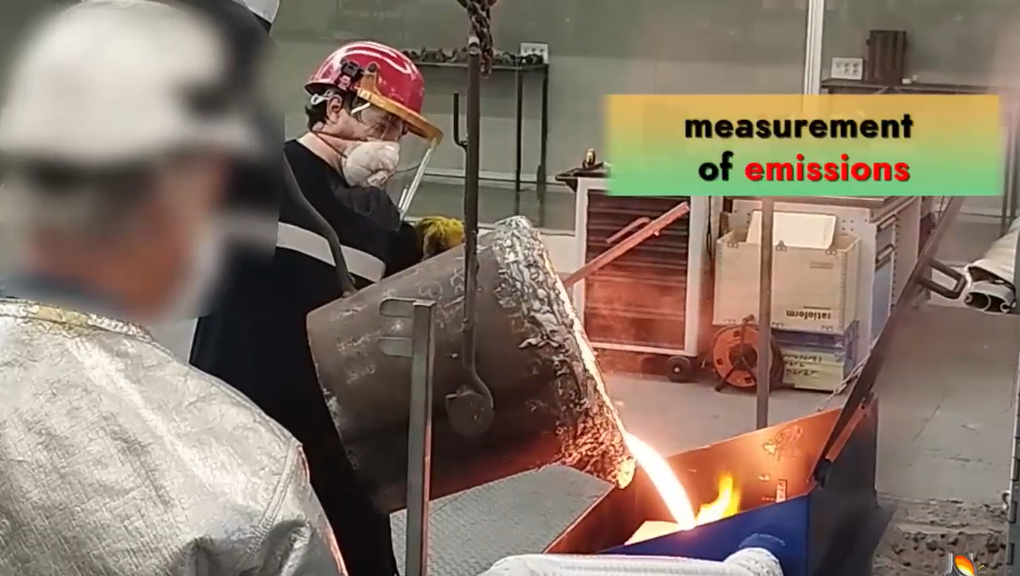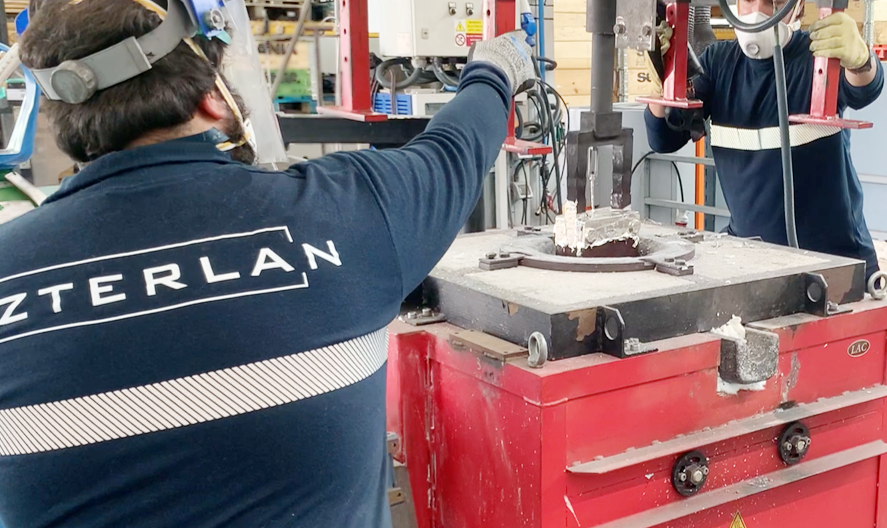Oriented to a Zero-Defect Manufacturing, the AZTERLAN Metallurgy Research Centre develops advanced monitoring systems to, “in real time, follow the actual status of the production process, predict its final result and even implement corrective actions in case of detecting risk of defect aparition”.
The integration of advanced data management technologies and the development of advanced process control procedures and tools open the door to the development of powerful control systems aimed at ensuring quality and achieving maximum stabilization of manufacturing processes. These tools provide process industries with significant opportunities for improvement, as well as to achieve practical and measurable targets, such as avoiding defective productions, improving performance, or obtaining significant savings in terms of materials, energy or inspection operations and finishing work that do not add value to the parts.
As explained by the AZTERLAN Iron Casting Technologies expert Beñat Bravo, “by incorporating these technological advances to the foundry we aim for a zero-defect manufacturing scenario in which we want the foundries to be able to carry out a mold by mold, and, even, a cavity to cavity, control of their manufacturing process, ensuring a possitive outcome”.
In this field, AZTERLAN has a long experience and several self-developed tools aimed at this purpose, such as the Sentinel® predictive control platform, the Kasandra® shrinkage defects prediction software or the Thermolan® thermal analysis system. “All these tools are fed with actual data from the manufacturing process and the characteristics of the metal. Thanks to a digital architecture where the correlations between the different parameters under control and the results of these interactions have previously been established, they allow us to forecast the result. This data architecture is what we call Predictive Control Models (MCP) and for its development it is necessary to integrate both a deep knowledge of the metallurgy and the transformation process and an advanced data analysis”.
Focused on reducing internal rejection and avoiding customer complaints related to inclusions and dimensional defects, the research team is currently developing a database with a mold-by-mold traceability of all the productive parameters to feed on to generate an intelligent response of the system that will be able to identify the molds and cavities in which an increased risk of defect is detected. “Among the defects that we seek to avoid we can find some very common ones in casting such as: sand dragging, mold forcings, inclusions of sand and other origins, poor surface finishes, mold swelling, lack of dimensional stability or pin-holes”. These types of defects can account for 30% of the total rejected parts, so “the development of MPC to identify them and generating the optimal production circumstances to avoid their appearance is an approach of great added value for the foundry industry”.
The work team foresees that the Predictive Control Models that they are currently developing, together with those already developed and implemented in the aforementioned control tools, will cover between 60-70% of all the defects that are usually observed in the production of parts manufactured in green sand moulding.
“However”, as Bravo clarifies, “due to the uniqueness of each foundry, the MPCs developed must be particularized in each case. For this reason, the implementation of these MPC in each foundry plant or reference to be manufactured will entail, in all cases, a period of data analysis to generate the intelligent response adjusted to each foundry process”.
This development is being addressed within the MPC Technology Transfer Project, funded by the Provincial Council of Bizkaia through the strategic Hazitek program (File No. 6 / 12 / TT / 2022) and is proposed as a continuation of a series of developments already carried out and transferred to many companies in Bizkaia, related to the prediction of metallurgical defects in iron castings.
- Main contact for MPC project: Beñat Bravo, Iron Foundry Technologies researcher.




